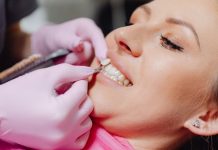What explains why some individuals achieve lasting sobriety following addiction treatment while others fall back into substance use soon after program completion?
Successful recovery outcomes depend heavily on the support provided following the primary treatment period. Aftercare serves as an essential element of addiction recovery programs which determines whether individuals achieve lasting sobriety.
The CDC reports that recent studies show relapse rates for drug and alcohol addiction range from 40% to 60%. The alarming relapse statistics show why aftercare programs play a critical role in achieving sustained recovery success.
What You’ll Discover:
- What Is Aftercare in Addiction Recovery?
- Why Aftercare Matters for Long-Term Sobriety
- Key Components of Effective Aftercare Programs
- The Science Behind Recovery Support
- How to Choose the Right Aftercare Program
- Building Your Recovery Network
What Is Aftercare in Addiction Recovery?
Aftercare represents the continuous support and services delivered to individuals following the conclusion of their initial addiction treatment program. Primary addiction treatment serves as an initial step in recovery while aftercare functions to sustain the progress achieved during this primary phase.
Upon exiting the structured treatment facility at Reprieve Recovery Center, individuals encounter every external trigger and stress that the real world presents. Aftercare offers both a protective framework and a transition roadmap that enables individuals to manage external challenges while enhancing their recovery techniques.
Effective aftercare typically includes:
- Regular therapy sessions (individual and group)
- Support group meetings
- Check-ins with counselors or recovery coaches
- Continued medication management (if applicable)
- Life skills training
- Housing support
- Employment assistance
The specific components vary based on individual needs, but the goal remains the same: The goal of aftercare programs is to deliver continuous assistance for individuals working to reestablish their lives following recovery.
Why Aftercare Matters for Long-Term Sobriety
A review of recovery outcomes demonstrates why aftercare services play a crucial role. According to a 2014 study Assertive Continuing Care (ACC) achieved a 57% abstinence rate after 12 months while standard care without strong aftercare only reached 20%.
The primary reason why aftercare creates substantial improvements is as follows:
- The brain requires time to restore normal chemical balance following substance dependence while coping mechanisms need time to develop into automatic responses.
- The treatment process establishes structure while aftercare guides individuals through progressive steps to reach independence instead of sudden changes.
- Aftercare provides essential support to help people transfer treatment skills to real-world scenarios.
- Access to supportive relationships during challenging times helps individuals avoid turning a setback into a relapse.
Treatment resembles learning to swim with expert guidance and safety equipment in a controlled pool. Aftercare provides a lifeguard and coach when you start ocean swimming because real challenges demand ongoing support.
Key Components of Effective Aftercare Programs
Not all aftercare programs are created equal. Aftercare programs that yield the best outcomes include multiple fundamental components which address the intricate aspects of addiction recovery.
1. Continuing Therapy and Counseling
Ongoing therapeutic sessions support individuals in processing their immediate challenges while helping them develop effective coping mechanisms. This might include:
- Individual counseling
- Group therapy
- Family therapy
- Specialized trauma therapy
Finding a qualified therapist in Massachusetts can ensure continuity of care post-treatment, especially for those transitioning into community-based support. Local professionals play a crucial role in maintaining emotional stability and helping clients apply recovery strategies in real-life contexts.
In the year 2023 only about 23.6% of people aged 12 and older who required substance use treatment received it within the previous twelve months which reveals the substantial treatment access gap.
2. Support Groups and Community Connection
Connection is a powerful antidote to addiction. Peer support played an essential role in recovery when 2.1 million people joined self-help groups in 2019. These groups might include:
- 12-step programs like AA or NA
- SMART Recovery
- Refuge Recovery
- Women for Sobriety
- Other peer support communities
3. Life Skills Development
During active addiction basic life skills deteriorate which means individuals in recovery must learn to rebuild these essential abilities.
- Financial management
- Healthy relationship building
- Employment readiness
- Time management
- Stress management
- Communication skills
4. Structured Living Environments
Certain people find transitional living environments helpful because they combine structured support with opportunities for greater independence.
- Sober living homes
- Recovery residences
- Halfway houses
- Oxford Houses
5. Recovery Monitoring and Accountability
Continuous monitoring and regular check-ins establish accountability and enable early intervention possibilities.
- Drug and alcohol testing
- Regular check-in appointments
- Recovery coaching
- Digital recovery support tools
The number of substance abuse treatment facilities in the United States reached 17,353 in 2022 and 72% of them provided pharmacotherapies while 57% applied medication-assisted treatment specifically for opioid disorders.
The Science Behind Recovery Support
Recovery means more than just willpower because it relies on brain science principles. Effective aftercare programs incorporate this understanding.
Research reveals that substance use modifies the brain’s reward pathways and healing requires time to complete. According to a Recovery Research Institute study 17% of individuals in recovery reported support services as key to their success.
Successful aftercare programs recognize:
- The brain develops new neural connections when practice continues over time.
- People need to practice new behaviors repeatedly until they become automatic.
- People recovering from addiction must learn how to handle stress through non-substance methods to succeed.
- Social Connection: Positive relationships strengthen recovery pathways.
A total of 3,935 facilities are dedicated to delivering services for substance abuse alongside mental health treatment recognizing their mutual importance for recovery.
How to Choose the Right Aftercare Program
Choosing appropriate aftercare support plays a crucial role in determining recovery success. Here’s what to consider:
Individual Needs Assessment
Each person’s recovery journey is unique. Look for programs that assess:
- Substance use history
- Co-occurring mental health conditions
- Family and social support
- Housing and employment needs
- Personal goals and potential triggers
Continuum of Care
Choose programs that provide multiple complementary services.
- Outpatient treatment options
- Support group connections
- Mental health services
- Medical care coordination
- Social services integration
Evidence-Based Approaches
Effective aftercare uses proven methods:
- Cognitive-behavioral therapy
- Motivational enhancement
- Contingency management
- Community reinforcement
Accessibility and Flexibility
Your most effective recovery plan will be the one you can maintain a regular commitment to.
- Convenient location or telehealth options
- Schedule compatibility
- Affordable payment options
- Cultural relevance
The 2021 National Survey on Drug Use and Health revealed that 72.2% of adults with substance use disorders viewed themselves as recovering through proper support systems.
Building Your Recovery Network
Lasting sobriety depends on strong recovery support networks.
Professional Supports
Maintain connections with treatment professionals:
- Therapists and counselors
- Addiction medicine physicians
- Recovery coaches
Peer Supports
Connect with others in recovery:
- Sponsorship relationships
- Recovery community organizations
- Alumni groups from treatment programs
Family Supports
Rebuild healthy relationships:
- Family therapy participation
- Clear communication
- Setting boundaries
Community Resources
Engage with broader supports:
- Faith communities
- Volunteer opportunities
- Educational programs
Every added connection acts as another thread in your recovery safety net which helps prevent a slip from turning into a full-blown relapse.
Navigating the Recovery Path
Aftercare functions as an indispensable component of addiction recovery. The shift back to everyday life from treatment creates obstacles that need continuous support.
The statistics make this clear: comprehensive aftercare significantly improves long-term recovery outcomes. Because relapse rates remain high at 40-60%, strong aftercare programs offer the potential to save countless lives and decrease both individual and societal addiction expenses.
For those seeking recovery, the message is clear: treatment is just the beginning. Adherence to a structured aftercare plan creates the distinction between temporary benefits and permanent transformation.
Understanding aftercare helps families and loved ones establish realistic expectations and deliver suitable support during the continuous recovery journey.
Recovery is a journey, not a destination.




